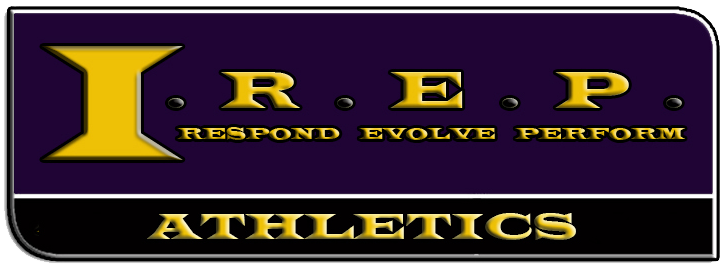The role of sports psychology extends beyond just understanding the mind and behavior of athletes. It entails integrating psychological elements and techniques that can enhance an athlete’s performance while balancing other aspects of their lives. It collectively refers to the study and application of how psychological factors affect performance and how participation in sports and exercise influences mental and emotional well-being.
Sports psychologists employ a broad spectrum of strategies aiming to boost an athlete’s mental game. The tentacles of sports psychology stretch to multiple dimensions, including but not limited to motivation, self-confidence, stress management, focus, and maintaining a positive mental attitude. Psychologists work meticulously to understand the psyche of athletes, interpreting their cognitive processes and emotional responses during various sporting activities.
 Sports psychology’s central premise revolves around the assertion that psychological factors can directly impact performance in physical activities. The most physically skilled athletes may find themselves outperformed by less skilled competitors due to a lack of mental fortitude or resilience.
Sports psychology’s central premise revolves around the assertion that psychological factors can directly impact performance in physical activities. The most physically skilled athletes may find themselves outperformed by less skilled competitors due to a lack of mental fortitude or resilience.
Sports psychology is not limited to just assisting athletes in improving their performance but equally contributes to promoting mental health, improving team dynamics, aiding injury rehabilitation, and advancing communication skills. It further helps athletes handle defeat, embrace victory, and cultivate the habit of extracting the lessons embedded in each, thereby aiding in personal growth.
With an extensive palette of approaches, sports psychologists often incorporate cognitive and behavioral strategies to ensure athletes remain focused, motivated, and resilient while performing. They emphasize shifting an athlete’s mindset from viewing pressure as a negative force to turning it into an energy source that fuels performance.
The Focus-Key Concentration
Concentration, or the ability to direct one’s attention to the task at hand, is a key attribute that can make or break an athlete’s performance. Because sports often require split-second decisions and reactions, having the ability to filter out distractions and stay focused on the present moment is crucial.
Building a ‘mental fortress’ of concentration is not an overnight task. It requires practice and training just like any physical skill involved in the game. All too often, sports performances are influenced by external distractions—noisy spectators, adversarial tactics, unfavorable weather—or internal distractions such as self-doubt, anxiety, or fatigue. The real challenge lies not in eliminating these distractions, but in developing the capability to swiftly refocus when distractions occur.
Sports psychologists employ a variety of techniques to help athletes enhance their concentration skills. One such technique is centering, which involves focusing one’s attention inwards and aligning the mind and body to perform optimally. By stressing the importance of mindfulness—being fully present and engaged in the current moment—centering aids athletes in mitigating the impact of stressors that might otherwise disrupt their focus.
Another effective technique employed is a routine-based approach to practice. This involves performing sequences of actions consistently before or during sports performances, providing a sense of familiarity and security in the athlete’s mind. This practice could range from pre-game warm-up rituals or certain gameplay tactics, all propelling athletes faster into their zone of peak concentration.
Mental exercises may also be used to hone focus, including methods like visualization and mental rehearsal. By visualizing the actions necessary for success, an athlete can enhance their ability to remain focused during the actual performance, thereby increasing their chance of positive outcomes.
Mental Imagery
Mental imagery, also known as visualization, is a powerful psychological tool used in sports psychology that involves creating, shaping, and enhancing an experience in the athlete’s mind, which can ultimately influence their performance in the real world.
The principle behind mental imagery is rooted in the concept that the brain cannot differentiate between something that’s vividly imagined and something real. This creates an opportunity for athletes to rehearse their skills, strategies, and desired outcomes in their minds before they ever take action on the field. This mental rehearsal allows the neural pathways associated with the specific activity to be strengthened, resulting in improved physical performance.
Mental imagery serves as a virtual training ground for athletes, where they can practice their skills, model ideal performance, analyze potential challenges, and develop effective coping strategies. This practice is not confined to visual images only; it also encompasses the other senses — hearing the sounds of the game, feeling the equipment in hand, tasting the sweat, and smelling the grass on the field.
Visualization can also be employed for team strategy. Visualizing how the entire team moves together, how they respond to various scenarios, and even predicting opponents’ strategies can significantly enhance collective performance and team cohesion.
Boost Your Confidence
Confidence – the belief in our ability to succeed – often significantly impacts an athlete’s performance in the sports domain. It is an essential ingredient of peak performance and is often what distinguishes successful athletes from their equally skilled but less successful counterparts. Having supreme and consistent confidence can assist athletes in letting their game speak for their abilities and skills.
Sports psychology offers numerous strategies to help athletes build and maintain the vital resource of confidence. One way is through the application of self-talk, where athletes are guided to engage in verbal or mental narratives that help enhance their self-belief and confidence. This positive spoken or unspoken statement can help direct their thoughts, affecting their emotional state and influencing their performance.
Another way to bolster confidence is through the practice of visualization or mental imagery. Athletes are taught to envision themselves succeeding in their sports – scoring the winning point, beating their personal best, or overcoming a difficult opponent. This psychological rehearsal not only hones an athlete’s technical skills but also fosters a strong belief in their abilities.
Achievement settings in training or practice can also come into play. By setting and accomplishing small, manageable goals, athletes can experience a sense of achievement which adds to their confidence level. This is a process of gradual building and reinforcement over time.
Equally important is the fact that confidence in athletes is also a product of preparation and past performance. An athlete who is thoroughly prepared and has repeatedly performed well in the past naturally brings a higher level of confidence to their game. It is also critical to remember that confidence is often contagious. Athletes who project self-belief onto their teammates tend to create an overall more confident, and thereby effective, team.
Coping with Pressure
Pressure often manifests as a two-headed beast in sports, accentuating performance in some while torpedoing in others. Recognizing this, sports psychology facilitates coaching to perceive pressure more as an opportunity than a threat. Athletes are taught relaxation methods, mindfulness, meditation, and other stress-relieving techniques.
The practice of controlled breathing in tense situations helps maintain heart rate and cortisol levels, allowing athletes to ‘play in the moment.’ Equally beneficial is the approach of mindfulness, assisting athletes in acknowledging their emotions and thoughts without letting them govern their reactions.
